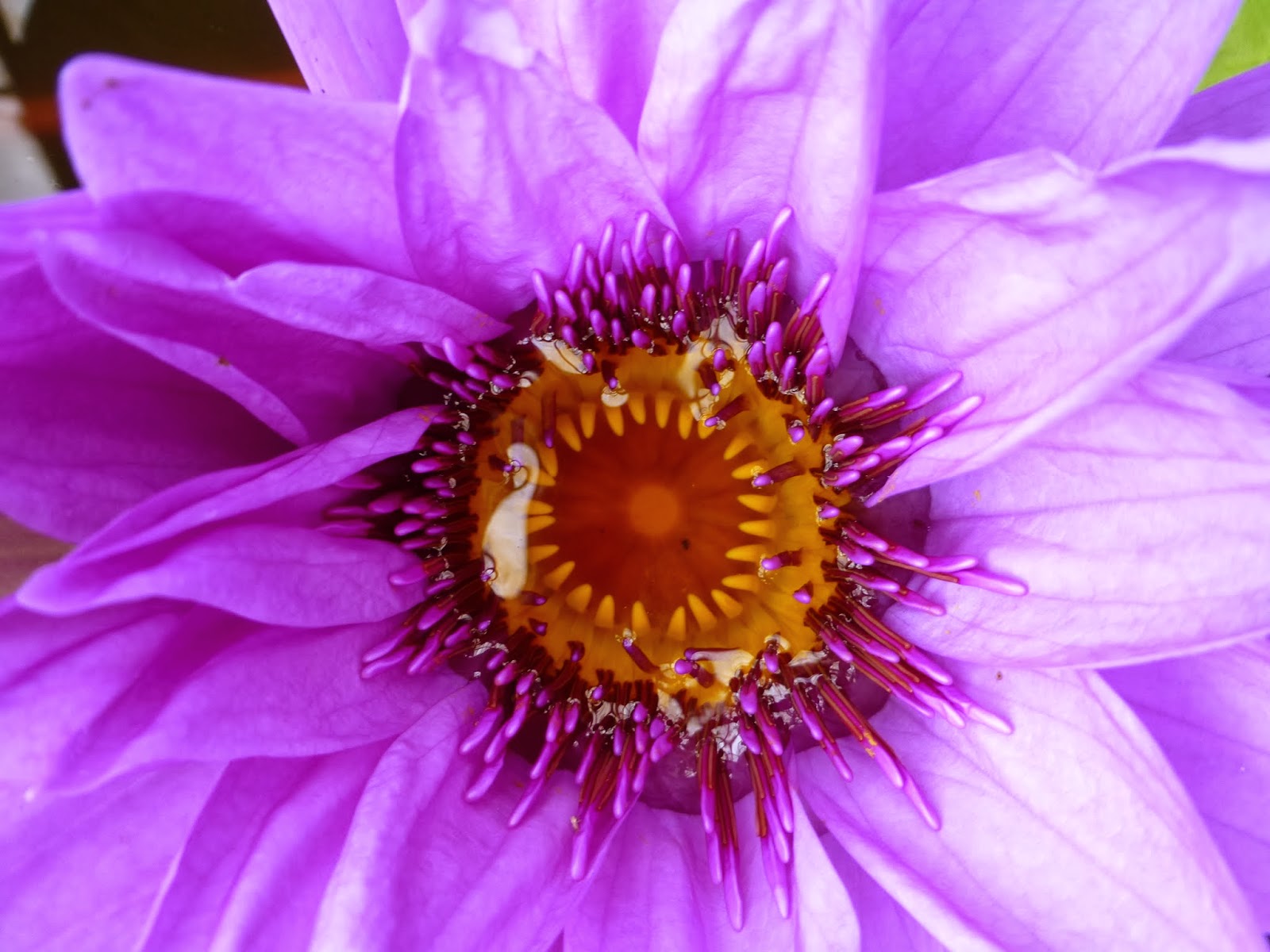I think I have some new favorite photos.
Situated on the other side of the tracks from the current campus of Hokkaido University, a surprisingly large botanical garden provided the environment for me to practice my macro photography skills, and when the sun finally poked its way through the clouds, I took some fantastic shots.
Once entering the garden, following the path to the right leads to this building. I wasn't sure what it was at first, but I ventured inside......to find a Northern Peoples museum. There are artifacts including clothing, tools, and daily wares, plus some information and videos about how Hokkaido's natives lived their lives.
Turtles and bears were hunted by the tribe/village people, and turtle skulls were important. One of the videos showed what would be quite controversial today - bear hunting.
There are some other buildings in the garden. Most of them have displays. This one was largely empty, though.
The displays are limited to the first floor, and seem to focus on a couple important people in the garden or university's history.
I'm sure the rest of the house is beautiful, but as you can see it's off-limits.
There are some farm-like areas to the garden, but it's mostly laid out in a way that serves as a pleasant place to take a stroll.
There is some wildlife around here. I don't know anything about paw prints, but this could be a stray cat or a fox.
This small pond is a glorified puddle, but it has a nice bridge going over it, and the ivy was pretty nice.
While following a loop around the grounds will let you see pretty much everything, there are a few highlights in the middle of the garden.
This tree had some interesting knots.
Macro practice. I took these photos in a garden area that was laid out in rows, like a farm.
At this point in my walk, the sun started to show itself, and shadows began forming on the ground.
The trees here are pretty interesting.
Another pond. This one was larger, and covered with some sort of water plant. A bunch of seed pods for some form of plant lined the edge of the pond.
The next major area was an herb garden, with a grape vine for good measure. Right next to the herb garden was a rose garden; many of the roses were in bloom when I visited. The sun fully came out when I was at these gardens, and a couple of the rose pictures below have joined my favorites.
Stepping out from the beautiful rose garden, I came across a group of buildings.
I'm not sure if they're used anymore or just kept for historical purposes. The nice white building in the last photo has another museum on the first floor.
The museum contains stuffed animals that I believe are all native to Hokkaido. Some of the specimens are very lifelike.
There are dozens of mammals, birds, and fish displayed in several large cases.
The monkeys are eerily lifelike. And Rocky makes an appearance, though Bullwinkle is nowhere to be seen.
Leaving the buildings, my next stop was a rock garden.
There are several evergreen trees here, as well as some plants that thrive in rocky environments.
Beyond that, there's another small pond and rocky hill with more plants. This seems to be set up as a sandy area:
There is a well-disguised path that leads up and through this garden.
The largest pond is almost a lake. There's a greenhouse beyond it.
A very content dragonfly was resting on the bridge's handrail. He didn't mind at all as I tried to get a good picture of him; it was very difficult trying to get focus on his head.
Several dragonflies were buzzing about here, though. It's another beautiful area in the garden. And inside the greenhouse, I found some of the coolest looking plants I've ever seen. Though I suppose I have seen most of them at other gardens before.
This thing looks plastic.
The Harry Belafonte song mentions the deadly black tarantula hiding in banana bunches, but there's a yellow banana on this tree hiding something else.
That is a cockroach. There were a few more inside; the banana was yellow because it had become food for some insects and was slowly ripening toward rotting.
The greenhouse has a pond with some lillies (or whatever these are).
Open flower. Closed center.
I really love the colors of these close-up shots.
This flower is fully open.
The middle of the flower has water. I wonder if it's designed to catch bugs. There are several carnivorous plants in the greenhouse.
The two carnivorous plants I can easily recognize are pitcher plants and Venus fly traps.
I peeked inside the pitcher plants and all of them had at least a little food. So while the insects might get their fill of bananas, the plants get their revenge in the end.
Pitcher pictures. There were several species on display.
My last stop in the greenhouse was the cactus garden. Despite starting with a full charge, my camera battery was nearly drained by the time I got here after about four hours of exploring and photography. Thankfully, this was also the end of my tour around the garden.
In addition to being a great place to take a stroll and take photos, there are several lawns and places to enjoy a picnic. The botanical garden is 10 minutes southwest on foot from Sapporo Station, and it's open 9:30-16:30 (until 16:00 October and November) from very late April to very early November. Admission is 400 yen. The greenhouse only is open the rest of the year with limited hours; admission during this time is 110 yen.
Note that the website (Japanese) for the gardens states the building with the preserved animals until this summer as it is earthquake-proofed.














































































No comments:
Post a Comment